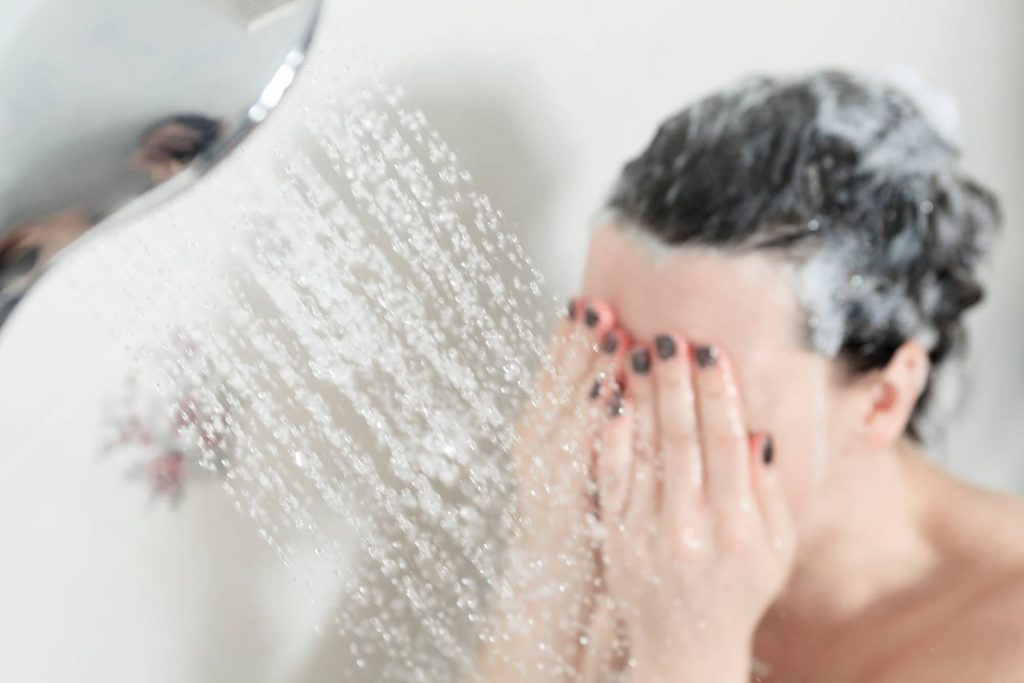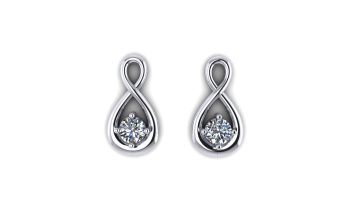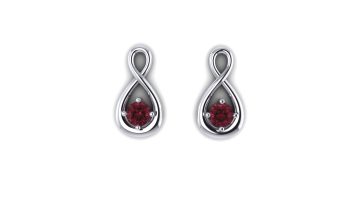What Jewelry You Can Wear In The Shower is not an uncommon question we get asked. Nobody wants to spend money on a piece of jewelry only to ruin it in the shower. The pool and ocean can be problematic for certain jewelry as well. Unfortunately, the internet is rife with disinformation about Jewelry You Can Wear In The Shower, ocean or pool. Additionally, many people don’t know that certain jewelry is not safe in the shower, ocean or pool. In this post we will lay out what metals and stones should avoid those situations when wearing jewelry.
What Jewelry You Can Wear In The Shower
When it comes to jewelry, it’s important to know how different metals can react to water. While some metals are more resistant to damage, others may tarnish or become discolored when exposed to water, especially when showering or swimming. For example, sterling silver and gold-plated jewelry can be more susceptible to tarnishing when in contact with water. On the other hand, metals like stainless steel and titanium are more resistant and can withstand exposure to water without any issues. So, if you want to keep your jewelry looking its best, it’s best to remove it before showering or swimming, especially if it’s made of more delicate metals.
Silver
Silver jewelry is a popular choice for accessorizing outfits, but it’s important to know how to care for it properly. One common question is whether it’s safe to wear silver Jewelry You Can Wear In The Shower, the pool, or ocean. Well, here’s the lowdown: it’s generally best to take off your silver jewelry before getting in the water. While silver is a durable metal, exposure to water, especially chlorinated or saltwater, can cause it to tarnish or even corrode over time. So, to keep your silver jewelry looking its best, it’s wise to remove it before taking a dip.
What if you forget to take off my silver jewelry and accidentally wear it in the shower or pool? Don’t worry, it’s not the end of the world. Just make sure to rinse your jewelry thoroughly with clean water afterwards and pat it dry with a soft cloth. This will help remove any residue or chemicals that may have come into contact with your silver jewelry. And remember, prevention is key, so try to develop the habit of taking off your silver jewelry before getting wet.
But hey, if you’re someone who loves wearing their silver jewelry all the time and can’t bear the thought of taking it off. There are a few things you can do to minimize the risk of damage. First, consider investing in a protective coating for your silver jewelry. A clear lacquer or a special anti-tarnish solution can help thwart the negative effect of water and chemicals. These products can help create a barrier between your jewelry and the water, reducing the chances of tarnishing or corrosion. Additionally, be sure to clean your silver jewelry regularly with a soft cloth or a gentle silver polishing cloth to keep it looking shiny and new.
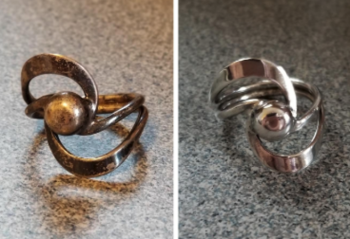
Gold
Gold jewelry is a popular choice for accessorizing and adding a touch of elegance to any outfit. However, when it comes to showering or swimming, it’s important to exercise caution. While gold is a kind of a Jewelry You Can Wear In The Shower, it can still be affected by exposure to water and chemicals. It is recommended to remove your gold jewelry before taking a shower or going for a swim to prevent any potential damage. Plus, let’s be honest, who wants to risk losing a precious piece of jewelry down the drain or in the depths of the ocean? So, play it safe and take off your gold bling before diving into the water.
Water, especially chlorinated or saltwater, can cause gold jewelry to tarnish or lose its shine over time. The chemicals in these waters can react with the metal and leave it looking dull or discolored. Additionally, the force of water can loosen the settings of gemstones or diamonds in your jewelry, increasing the risk of them falling out. It’s better to be safe than sorry, so why not take a few extra seconds to remove your gold jewelry before jumping in the pool or ocean?
If you’re worried about leaving your gold jewelry unattended while you swim or shower. Invest in a small jewelry box or pouch to keep it safe. This way, you can enjoy your water activities without any unnecessary stress or worry. Remember, gold jewelry is meant to be cherished and enjoyed, so take the necessary precautions to keep it looking its best for years to come.
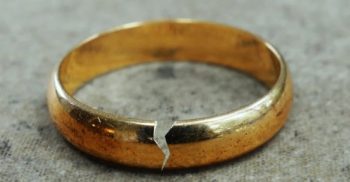
Gold Plated & Filled Jewelry
Gold plated jewelry is a popular choice for accessorizing, but it’s important to know how to care for it properly. While gold plating can provide a beautiful and affordable alternative to solid gold, it is not as durable. One thing to keep in mind is that wearing gold plated jewelry while showering or swimming can cause the plating to wear off more quickly. The water, soap, and chlorine can all contribute to the deterioration of the gold plating. To keep your gold plated jewelry looking its best, it’s best to remove it before getting in the water.
Platinum & Palladium
Platinum and palladium jewelry are exquisite choices for adding a touch of luxury to any outfit. However, when it comes to showering or swimming, it’s important to exercise caution. These metals are known for their durability and resistance to tarnishing. However, prolonged exposure to water can still have an impact on their appearance and longevity.
Water, especially chlorinated water, can cause a buildup of residue on the surface of platinum and palladium jewelry. This can result in a dull, lackluster appearance over time. To maintain the brilliance of your precious pieces, it is best to remove them before taking a dip in the pool or hopping into the shower.
If you forget to take off your jewelry and it does come into contact with water, don’t panic! Simply give it a gentle cleaning with a mild soap and warm water solution. Use a soft cloth or a toothbrush with soft bristles to remove any residue. Avoid using harsh chemicals or abrasive materials, as they can scratch or damage the metal.
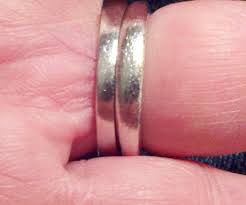
Stones In Jewelry You Can Wear In The Shower
When it comes to jewelry, not all stones are created equal. While some may be delicate and prone to damage, there are actually a few types of stones that you can confidently wear in the shower. One such stone is the diamond. Known for its durability and strength, diamonds are not only beautiful but also resistant to water damage. So go ahead and let your diamond jewelry sparkle even in the shower!
Another stone that can handle the shower is the sapphire. This stunning gemstone is not only vibrant in color, but it is also quite resilient. With a hardness rating of 9 on the Mohs scale, sapphires are highly resistant to scratches and can withstand exposure to water. So feel free to wear your sapphire jewelry without worry, even when you’re taking a refreshing shower.
Lastly, let’s not forget about the trusty and versatile quartz. With its wide range of varieties, including amethyst, citrine, and rose quartz, quartz is a great choice for shower-friendly jewelry. While not as hard as diamonds or sapphires, quartz is still durable enough to withstand occasional exposure to water. So whether you prefer the calming purple hues of amethyst or the sunny yellow tones of citrine, you can enjoy wearing your quartz jewelry in the shower.
Stones You Can’t Wear In Water
When it comes to gemstones and water, not all combinations are a match made in heaven. While some gemstones can handle a dip in the pool or a splash in the ocean without a problem, others are better off staying dry. One gemstone that should definitely avoid water is opal. This delicate beauty is known for its mesmerizing play of colors, but it’s also prone to cracking and losing its luster when exposed to moisture. So, if you want to keep your opal looking its best, keep it away from water adventures.
Another gemstone that doesn’t mix well with water is pearl. These elegant treasures from the sea are formed when an irritant enters an oyster or mollusk and is coated with layers of nacre. Pearls are naturally formed in water. However, they are sensitive to chemicals and can be easily damaged by chlorine in pools or saltwater in the ocean. So, if you want to preserve the beauty and luster of your pearls, it’s best to avoid exposing them to water.
Lastly, we have turquoise, a gemstone known for its vibrant blue and green hues. While turquoise is often associated with water, it’s actually quite porous and can absorb liquids, leading to discoloration and damage. So, if you have a turquoise piece of jewelry that you cherish. It’s best to keep it away from water to ensure its longevity.
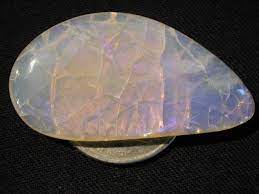
Jewelry You Can Wear In The Shower
Our basic advice is not wear ANY jewelry in the shower, pool or ocean. It isn’t worth it. On top of the physical damage that can be done, a ring or earrings are more likely to fall off in water. Just put it in a safe place while you are wet and you will be fine. Who needs jewelry when swimming or showering anyways?
We hope this has helped a little with Jewelry You Can Wear In The Shower. Unfortunately, it might not have been what you wanted to hear. However, doing something as simple as removing your jewelry can make it last far longer and look better for far longer.
You can view our portfolio of custom engagement rings or custom pendants to look for ideas. Or you can contact us with your own idea.
